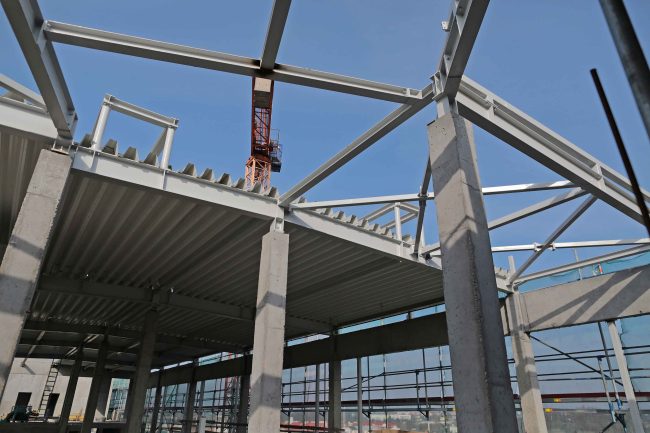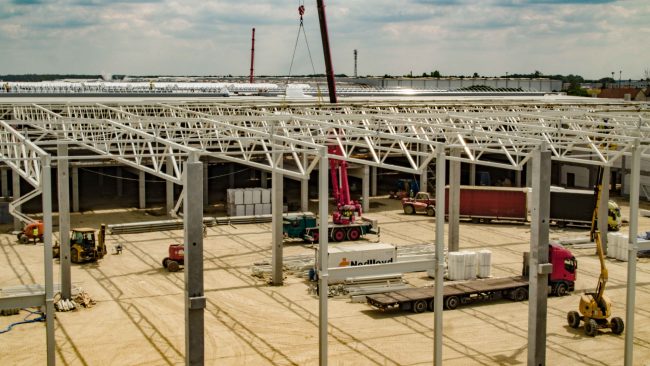

Development investments in the new legal environment. Interview with Pawel Ziminski, Managing Partner at RK Legal
This autumn, new legal regulations are coming to the real estate market, which will significantly affect administrative proceedings. Individual investors and developers may have a tough nut to crack, as the amendment to the Spatial Planning Act will certainly thwart many investment plans. We talk to attorney Paweł Ziminski – managing partner at RK Legal.
The predicted changes are slowly becoming a reality. On 7 July, 2023, an amendment to the Spatial Planning and Development Act was passed. The Act was signed by the President. What will be the effects of these changes?
Undoubtedly, the changes introduced by the government in the field of spatial planning and development are ground-breaking steps. They will enter into force in stages, with 1 January, 2026 being an important date to remember. This is the deadline for municipalities to adopt a general plan – a new planning tool in local legislature. The general plan will cover the entire municipality and it will become the basis not only for the adoption of detailed local plans, but also for issuing decisions on development conditions.
Therefore, we can see that the impact of the changes will be felt not only by state entities, but also by investors who have to prepare for new requirements when obtaining decisions on land development conditions, the so-called WZ decision (outline planning permission). For example, according to the amendment, individual types of facilities that do not require a building permit will not be required to obtain a WZ decision. However, one of the most important changes is the introduction of the validity period of the WZ decisions – five years from their entry into force. This procedure is primarily intended to limit the practice of obtaining the WZ decision for speculative purposes. This will not apply to decisions that became final before January 1st, 2026. Such decisions will remain indefinite, and the existing regulations shall apply.



In the face of these changes, will it be more difficult to obtain these “WZ” decisions?
The very process of obtaining a WZ decision will not change much, and therefore it cannot be said that pursuing them will be more difficult than it is now. The key will be the details of the general plan, including the planning zone, in which the investment will be located. Certain zones will require the fulfilment of specific parameters, such as the maximum above-ground intensity of development, maximum height of development, indicator of the minimal biologically active area. By adopting the general plan, the municipality may also establish requirements regarding the maximum distance of the investment from social infrastructure facilities. In the assumption of the legislator, it is to be a tool to combat dispersed housing projects and the related low standard of public services, communication exclusion of new housing estates, etc. I hope that the introduced changes will motivate local governments to adopt general plans faster, which in turn will lead to the acceleration of investment processes in Poland.
In that case, will the mentioned changes have a significant impact on the lives of the residents of new investments?
Of course. Most of the changes introduced by the amendment are a turning point in this respect. I hope that the municipalities will adopt such general plans that will enable rational development. I mean solutions that will ensure efficient access to jobs for residents, availability of full technical infrastructure for their homes, proximity to cultural assets, sports facilities, recreational areas, without compromising the aesthetic and landscape values of the area. The act gives local governments a lot of room for manoeuvre in this regard. In addition, the amendment introduces the possibility of public participation in spatial development plans, as part of a civic legislative initiative. Social participation will also play a part in case of the so-called integrated investment plans. It will be a special type of local plan, adopted by the municipality at the investor’s request, after conducting negotiations and concluding an urban development agreement with him. Such an agreement may impose obligations on the developer regarding construction of supplementary facilities, such as roads, kindergartens, schools, sports facilities, etc. – everything necessary to support the main investment, e.g. a new housing estate. It is also worth emphasizing that the existing local plans remain in force, regardless of whether a general plan has been adopted in the municipality.
Does the amendment provide for any other facilitations for investors?
Of course. One of them is the possibility of adopting or amending the local spatial development plan in a simplified way. This will, in cases defined by law, significantly shorten often long-term procedures. Thanks to this, investment processes will be able to begin faster.



At this point, it is also necessary to focus on the difficulties lurking for investors in connection with the introduced amendment. Are there any additional risks worth mentioning?
Yes. In order to be able to take advantage of most of the new solutions, it will be necessary for the municipality to adopt a general plan for its area. After 1 January, 2026, it will not be possible to submit an application and obtain a WZ decision in the area without a general plan. This would obviously stop investments in the area. Therefore, commitment and discipline in developing the planning policy for the next several months, which local governments should impose on themselves, are important. This process will of course be costly and require organisational effort, but I believe it will pay off for everyone in the long run.
Pawel Ziminski, Managing Partner of RK Legal



I have been coordinating the work of RK Legal’s Real Estate Department. I specialize in the cases related to investments on the real estate market. For many years, I have been advising clients on real estate trading and project preparation, providing legal assistance at all stages of the construction process. I represent developers, investors, contractors, condominium owners’ associations and real estate owners.
Last Updated on November 2, 2023 by Krzysztof Kotlarski